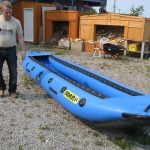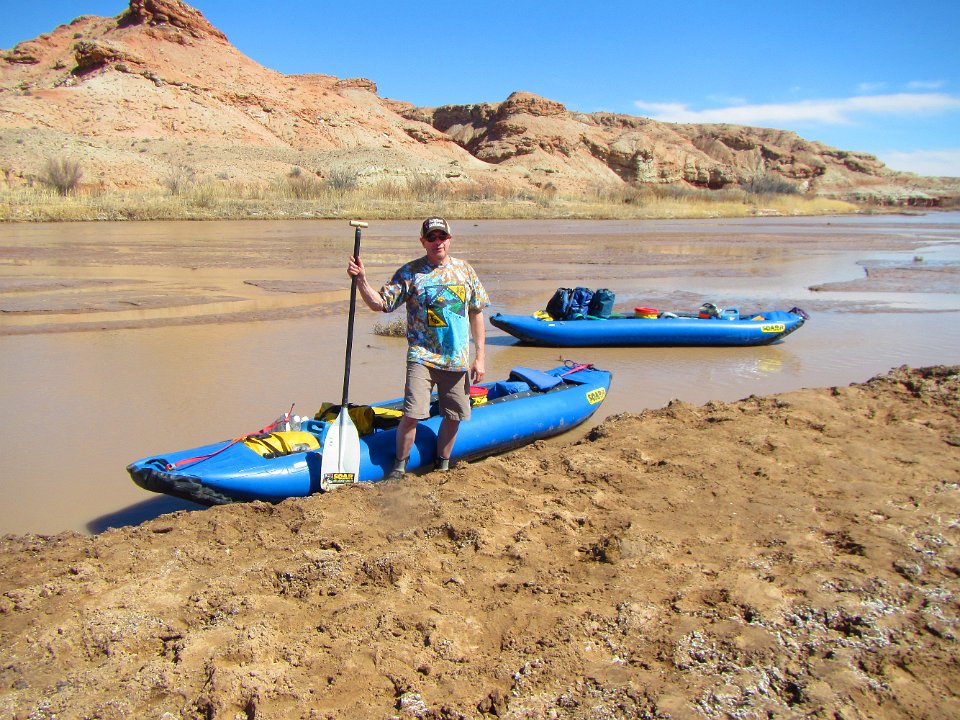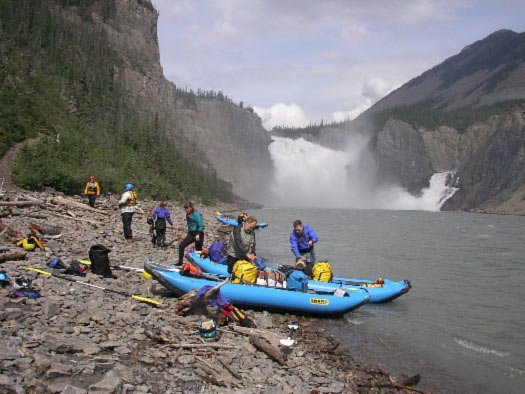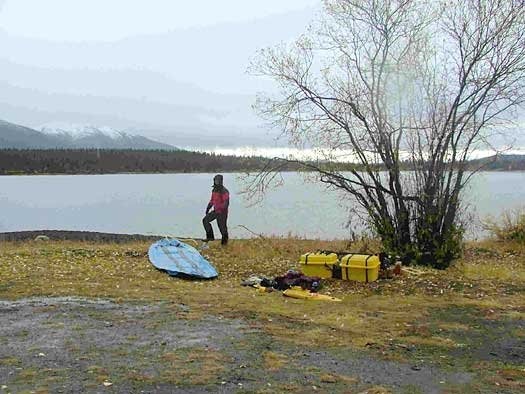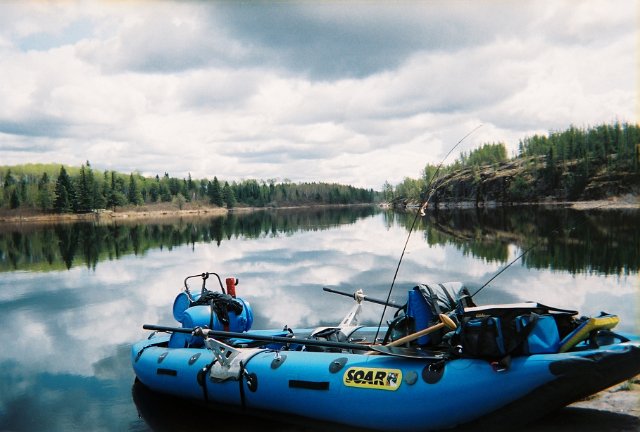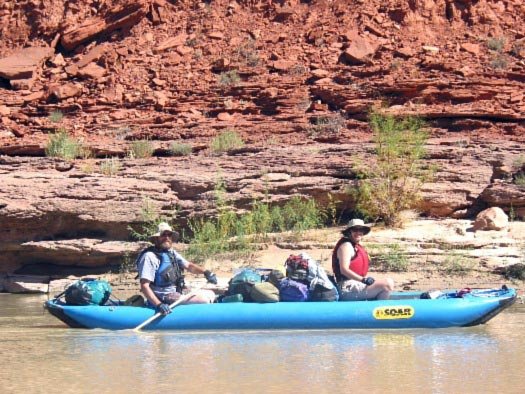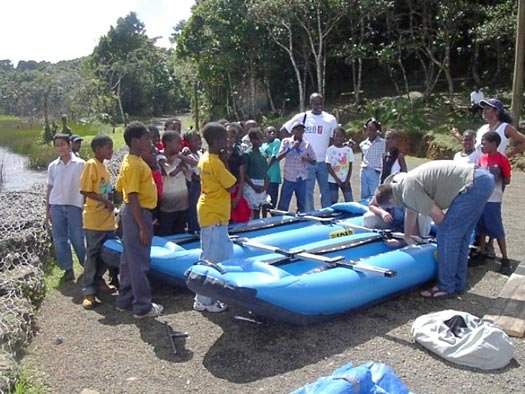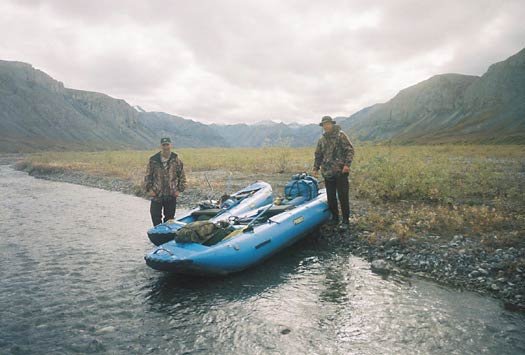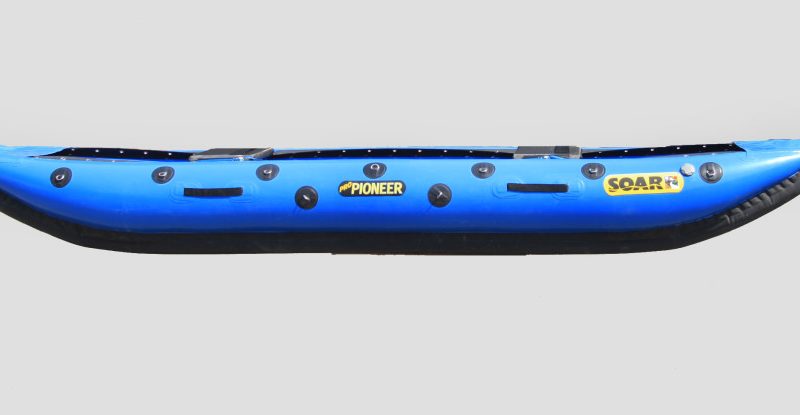Utah’s Dirty Devil River has always been known to be a low-to-no water river, and catching it at a decent flow is very hard to achieve. Farmers have the right to divert water from the river as of April 1, and the snows (if there is much) doesn’t melt until May and June. Most guidebooks say to run it before April 1 which is what we attemted to do. On March 19, Bob, Dirk and I set out from outside of Hanksville, each in a solo S14 Canyon fully self-supported for 9 days including carrying all of our water!
Everyone said to pack as light as possible, but we knew that SOARs can carry larger loads with less draft because of their longer water, and the unique design of the hull. For the first five days, the average depth of water was less than 6″! Thin threads of water 4 – 5 inches deep and barely 30″ wide did not leave much room for error, as we constantly searched for the deepest seam, usually hugging the edge of a riverbank before it crossed to the other side of the river through very thin braids.

